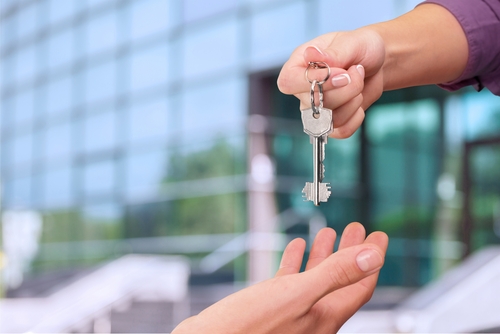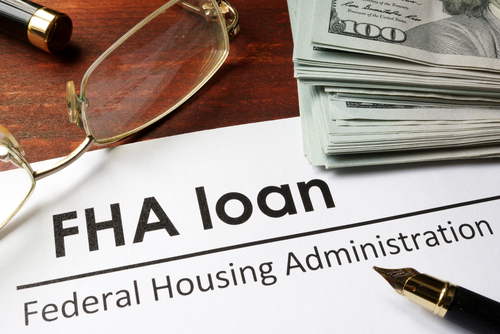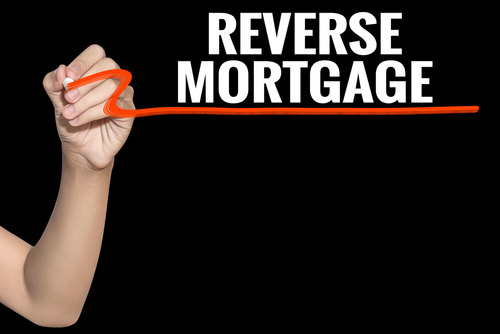
There are benefits to owning a property. You don't have to deal with a landlord raising your rent every year. Homeownership provides a better sense of stability. And as a homeowner, you're eligible for certain tax deductions. But despite the benefits, this isn’t a decision to take lightly. Before you embark on this journey, you have to consider whether you're ready for the responsibility. It can be difficult to assess whether now’s the time, but there are four tell-tale signs that you're not ready to buy a house. 1.You’re barely getting by In some cases, buying a home is cheaper than renting. But this doesn't mean buying is always the right choice. Homeowners are responsible for home maintenance and repairs, which might include getting a new roof, new doors and windows, a new HVAC system and taking care of other minor repairs here and there. To properly maintain a home, you need disposable income to build a cash reserve. And unfortunately, if you're just getting by as a renter, buying a home isn't likely to improve your financial outlook—unless the… Read more

If your home has increased in value and you're sitting on a sizable amount of equity, you may think this is your golden ticket to do whatever you want. Home equity is the difference between what you owe the bank and the value of your property. As you pay down your home loan, and as your property appreciates in value, your equity increases. And with sufficient equity, you can borrow against your home and use the cash for a variety of purposes. There are many uses for home equity. Some people get a home equity loan or a home equity line of credit and use the money to renovate or improve their property. This is a smart use for equity because home improvements and renovations can increase the value of your property, resulting in more equity. A home equity loan or home equity line of credit is also useful for paying off high-interest credit card debt. The interest rate on a home equity loan or line of credit is often cheaper than the interest rate on a credit card, which… Read more

Mortgage refinancing is the process of getting a new home loan to replace an existing one. You’ll fill out a new mortgage application and the bank will check your credit. But although refinancing and getting an original mortgage are basically the same process, there are slight differences between these transactions. 1.You need at least 5% equity for a refinance If you apply for a traditional refinance, your property will need at least 5% equity. There are no rules on the amount of equity needed when getting an original mortgage, although you can't get an original mortgage for more than the value of a property. When you buy a house, your mortgage lender sends an appraiser to the home. If the appraiser determines that the house is worth $200,000 and you agreed to a sale price of $200,000, you can proceed with the mortgage despite having minimum equity. This isn't the case with a traditional refinance. There are options for refinancing a property with little or no equity. If you’re eligible for the Home Affordable Refinance Program (HARP), you can refinance… Read more

Since buying a home isn't cheap, some people purchase fixer-upper houses which lets them get more for their money. These properties typically cost less than move-in ready homes, but often times, buyers need cash to renovate these properties. Rather than get a mortgage and a second loan to cover the costs of renovations, an FHA 203(K) mortgage allows you to combine a first mortgage with a renovation loan. This FHA home loan product is an affordable choice because it has limited closing costs and you only need a 3.5% down payment. The minimum amount you can borrow for home improvements is $5,000, which can be used for a variety of updates. However, before you submit an application for this loan, there's a few things you should know. 1. You don't have to be a first-time home buyer FHA home loan products are an excellent choice for first-time homebuyers because they require little money down. But you don't have to be a first-time buyer to take advantage of an FHA home loan, including an FHA 203(K) mortgage. Whether you’re a first-time… Read more

If you have a paid off mortgage and you're over the age of 62, you might be a candidate for a reverse mortgage. A reverse mortgage is a way to get cash without selling your home or applying for a cash-out refinance. You can borrow from your equity, and you don't have to repay funds until you die or sell the property. A reverse mortgage is similar to a home equity loan. But unlike a home equity loan, a reverse mortgage doesn't require prepayment of principal or interest, although you are responsible for homeowner’s insurance and taxes. And since a reverse mortgage is a government product, you're protected if your home’s value declines. If your loan amount is more than the value of the house at repayment, the government pays the difference. As a retiree on a fixed income, a reverse mortgage provides cash when you don’t have other options. Here are four benefits of getting a reverse mortgage. 1. Supplement your income In all likelihood, your income will decrease after retiring. Even if you receive distributions from a retirement… Read more







